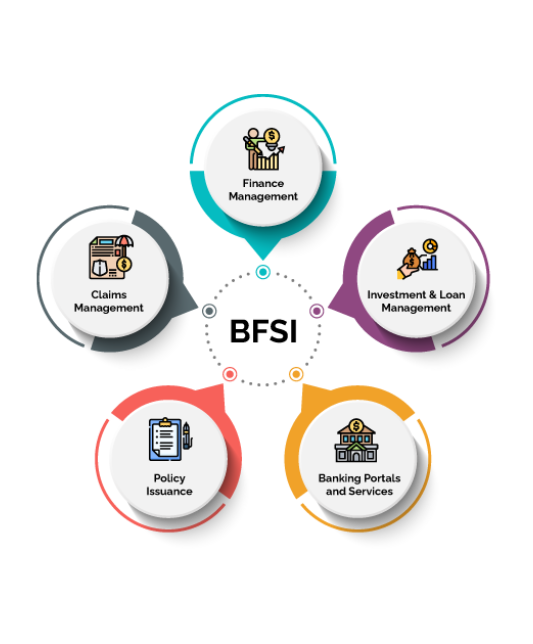BFSI
BFSI stands for Banking, Financial Services, and Insurance. This sector encompasses a range of companies and institutions that provide financial products and services. This includes commercial banks, investment banks, insurance companies, brokers, asset managers, and non-banking financial companies (NBFCs). The BFSI sector plays a critical role in the economy by facilitating payments, providing capital, managing risk, and helping individuals and businesses to save, invest, and insure their assets. Government authorities closely regulate it due to its importance to the financial stability of a country.

What problem facing tracking salesperson
Tracking salespersons and services in the BFSI (Banking, Financial Services, and Insurance) sector presents several challenges due to the complex nature of financial products, regulatory requirements, and customers’ evolving needs. Here are some of the key problems faced in tracking salespersons and services in BFSI:
Regulatory Compliance
The BFSI sector is heavily regulated to protect consumers and maintain financial stability. Sales personnel must adhere to strict regulations regarding customer interactions, product disclosures, and data privacy. Ensuring compliance with these regulations while tracking sales activities adds complexity to the process.
Product Complexity
Financial products such as investment funds, insurance policies, and banking services can be complex and diverse. Sales personnel must have a deep understanding of these products to communicate their features and benefits to customers effectively. Tracking sales performance and customer satisfaction becomes challenging when dealing with a wide array of products.
Data Security
Financial institutions handle sensitive customer data, including personal and financial information. Tracking sales activities requires robust data security measures to protect this information from unauthorized access or misuse. Compliance with data protection laws such as GDPR (General Data Protection Regulation) further complicates data management and tracking.
Customer Relationship Management
Building and maintaining strong relationships with customers is essential in the BFSI sector. However, tracking the effectiveness of customer interactions and ensuring consistent communication across various channels (such as in-person meetings, phone calls, emails, and online platforms) can be difficult.
Cross-Selling and Upselling
Financial institutions often aim to cross-sell or upsell additional products or services to existing customers. Tracking salesperson performance in identifying opportunities and effectively executing cross-selling strategies requires robust tracking systems and analytics capabilities.
Technology Integration
The BFSI sector relies increasingly on technology to streamline sales processes, manage customer relationships, and track sales performance. However, integrating different technology systems (such as CRM software, sales tracking tools, and online banking platforms) can be complex and may require significant investment in infrastructure and training.
How to solve those problems
Regulatory Compliance Tools
Incorporate features into the Team OS that automate compliance checks and ensure adherence to regulatory requirements. This can include built-in prompts and guidelines to help salespersons navigate complex regulations during customer interactions.
Product Knowledge Management
Implement a centralized knowledge management system within the Team OS that provides salespersons with up-to-date information on various financial products and services. This ensures that sales staff are well-equipped to communicate product features and benefits accurately to customers.
Secure Data Handling
Integrate robust data encryption and access controls into the Team OS to ensure the security and privacy of customer information. This includes features for tracking and auditing data access, as well as mechanisms for securely transferring sensitive information between salespersons and customers.
CRM Integration for Relationship Management
Integrate Customer Relationship Management (CRM) functionality into the Team OS to facilitate tracking of customer interactions and preferences. This allows salespersons to maintain detailed records of customer communications and tailor their sales approach accordingly.
Analytics and Reporting Tools
Equip the Team OS with advanced analytics and reporting capabilities to track sales performance, identify trends, and measure the effectiveness of sales strategies. This enables sales managers to make data-driven decisions and optimize sales processes for improved results.
Technology Integration and Training
Provide comprehensive training and support to salespersons on how to effectively use the Team OS and other technology tools. This ensures that sales staff are proficient in leveraging technology to streamline sales processes and maximize productivity.
